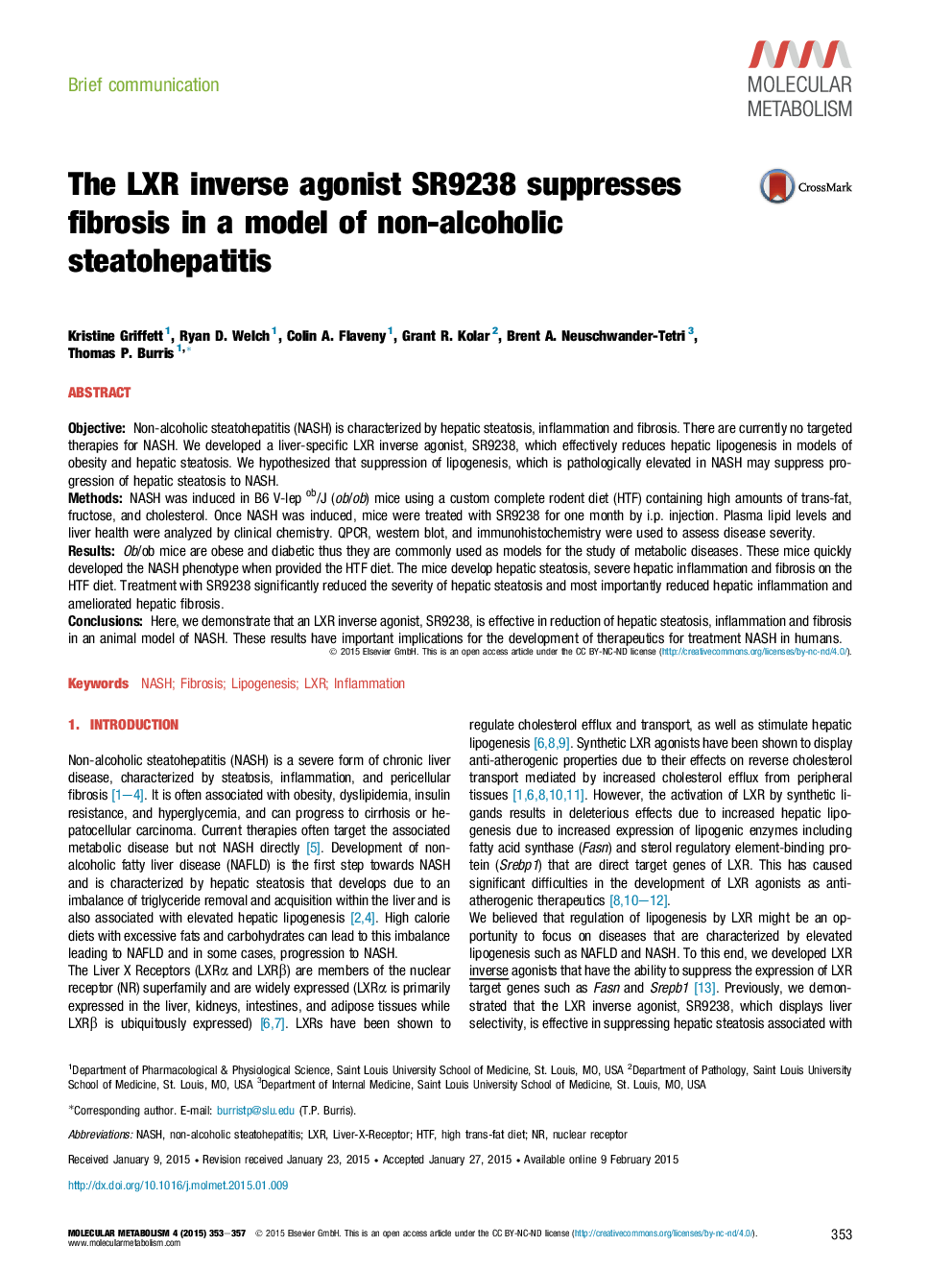| Article ID | Journal | Published Year | Pages | File Type |
|---|---|---|---|---|
| 3001368 | Molecular Metabolism | 2015 | 5 Pages |
ObjectiveNon-alcoholic steatohepatitis (NASH) is characterized by hepatic steatosis, inflammation and fibrosis. There are currently no targeted therapies for NASH. We developed a liver-specific LXR inverse agonist, SR9238, which effectively reduces hepatic lipogenesis in models of obesity and hepatic steatosis. We hypothesized that suppression of lipogenesis, which is pathologically elevated in NASH may suppress progression of hepatic steatosis to NASH.MethodsNASH was induced in B6 V-lep ob/J (ob/ob) mice using a custom complete rodent diet (HTF) containing high amounts of trans-fat, fructose, and cholesterol. Once NASH was induced, mice were treated with SR9238 for one month by i.p. injection. Plasma lipid levels and liver health were analyzed by clinical chemistry. QPCR, western blot, and immunohistochemistry were used to assess disease severity.ResultsOb/ob mice are obese and diabetic thus they are commonly used as models for the study of metabolic diseases. These mice quickly developed the NASH phenotype when provided the HTF diet. The mice develop hepatic steatosis, severe hepatic inflammation and fibrosis on the HTF diet. Treatment with SR9238 significantly reduced the severity of hepatic steatosis and most importantly reduced hepatic inflammation and ameliorated hepatic fibrosis.ConclusionsHere, we demonstrate that an LXR inverse agonist, SR9238, is effective in reduction of hepatic steatosis, inflammation and fibrosis in an animal model of NASH. These results have important implications for the development of therapeutics for treatment NASH in humans.
